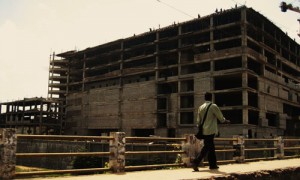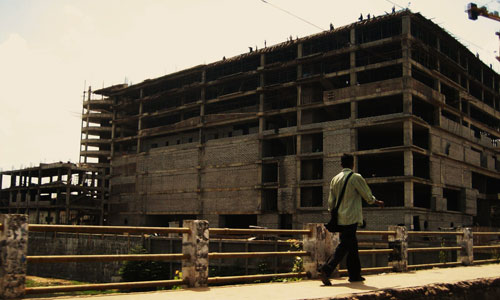 Track2Realty: In India, labour shortage is pegged to go up by 65 per cent by the next decade with more workforce moving from traditional brick and mortar industry like the construction and real estate sectors to more lucrative industries such as IT, ITeS, Banking and Telecom.
Track2Realty: In India, labour shortage is pegged to go up by 65 per cent by the next decade with more workforce moving from traditional brick and mortar industry like the construction and real estate sectors to more lucrative industries such as IT, ITeS, Banking and Telecom.
The acute labour shortage in the construction sector is going to drive the industry to go in for large-scale mechanization and also project management, as per the Report Titled – ‘Indian Construction Sector – The Great Leap Forward’, by Synergy Property Development Services, the Global Project Management Consulting & Turnkey Solution Company.
The comprehensive report has clearly indicated that the future of the construction sector will hinge on project management, mechanization and pre-cast or prefabricated technology, to meet the challenges of cost, quality and time.
Sankey Prasad, Chairman and Managing Director, Synergy Property Development said, “The last decade was very interesting. We witnessed high and low of all aspects of the construction sector, the demand supply of materials, the housing market, labour availability and geographic shifts. Overall it was a honeymoon period. The next 10 years will be a period of caution and uncertainty, with innovation and technology adoption being the guiding force. Further cost rise of construction materials and inflation will remain a concern.”
Mechanization & Project Management
The report highlights the industry’s constant struggle to manage cost, quality and time in construction projects. It has pointed out that with the cost of material expected to double in the near future, the sector in India has no other option but to adopt and blend in global best practices. In order to survive and sustain, the sector has to go in for large scale ‘mechanization’ and ‘outsourcing of project management services’.
It said that the rate of mechanization in India at 20 per cent was low compared to the developed countries where it was between 60 and 70 per cent. With India at the cusp of rapid urbanization and development, there was ever-increasing demand for commercial and residential space and it could be met only through adoption of mechanization and project management practices.
The report gives a multi-faceted industry perspective on compulsions and circumstances that have resulted in the sector come to the present crossroads. The report, which is timely and incisive, reiterates the potential of the construction sector to propel India to becoming the country with the third largest GDP in the world in just two decades.
Labour Shortage
With rapid development across Tier II & III cities, India will witness acute labour shortages in the coming years. It is here that project management services will provide the customer with a one-stop professionally trained and proven solution that will enable integrated and supervised project implementation, from design to delivery. The report there was distinct labour trend. In 2002, the number of labourers required to build half a million sq. feet was about 700-800 construction workers and in 2012 with gradual mechanization it had come down to about 200 workers and by 2022, it would reduce further.
Time is Ripe to Investment in Residential & Commercial Property
The report said that the present times were appropriate for those wanting to invest in either in their ‘dream house’ or commercial property, as there are indications of increase in prices by nearly 50 per cent, based on RBI projections.
“Investment in real estate now would be timely and save the buyer the pangs of acquisition, compounded by inflationary trends,” said Sankey Prasad – Chairman & MD – Synergy Property Development Services.
Additionally, without proper project management practices, that involve design, construction related activities, management of work schedules etc, there could be time overruns in the delivery of the project. This is likely to increase the overall cost of construction. Therefore, the RBI projections notwithstanding, the overall project implementation practices also impact on the cost, quality and time of projects, particularly the residential and commercial ones.





